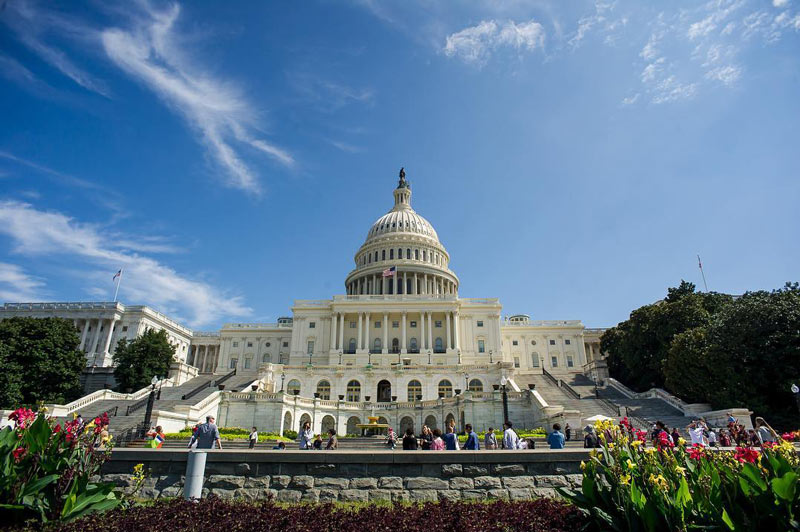WASHINGTON (AP) — Congress delivered a nearly $500 billion infusion of coronavirus spending Thursday, rushing new relief to employers and hospitals buckling under the strain of a pandemic that has claimed almost 50,000 American lives and one in six U.S. jobs.
The bipartisan measure neared passage as lawmakers gathered in Washington as a group for the first time since March 27, adopting stricter social distancing rules while seeking to prove they can do their work despite the COVID-19 crisis.
Lawmakers’ face masks and bandannas added an somber tone to their effort to aid a nation staggered by the health crisis and devastating economic costs of the pandemic.
Anchoring the bill is the Trump administration’s $250 billion funding request to replenish a fund to help small and medium-sized businesses with payroll, rent and other expenses. The payroll program provides forgivable loans so businesses can continue paying workers while forced to stay closed for social distancing and stay-at-home orders.
It also contains $100 billion for hospitals and a nationwide testing program, along with a $60 billion set-aside for small banks and an alternative network of community development banks that focus on development in urban neighborhoods and rural areas ignored by many lenders. There’s also $60 billion for small-business loans and grants delivered through the Small Business Administration’s existing disaster aid program.
President Donald Trump celebrated the bill’s passage at his daily White House briefing Thursday. “At a time when many Americans are enduring significant economic challenges, this bill will help small businesses to keep millions of workers on the payroll,” he said.
Passage of more coronavirus relief is likely in the weeks ahead. Supporters are already warning that the business-backed Payroll Protection Program will exhaust the new $250 billion almost immediately. Launched just weeks ago, the program quickly reached its lending limit after approving nearly 1.7 million loans. That left thousands of small businesses in limbo as they sought help.
Among the candidates for aid in the next bill is the Postal Service, which has more than 600,000 workers but is getting clobbered by COVID-19-related revenue losses.
Thursday’s measure brings total rescue funding over the four measures, as measured by the cumulative deficit impact of spending proposals and tax cuts, to $2.4 trillion, according to the Congressional Budget Office.
Associated Press writer Laurie Kellman contributed to this report.










